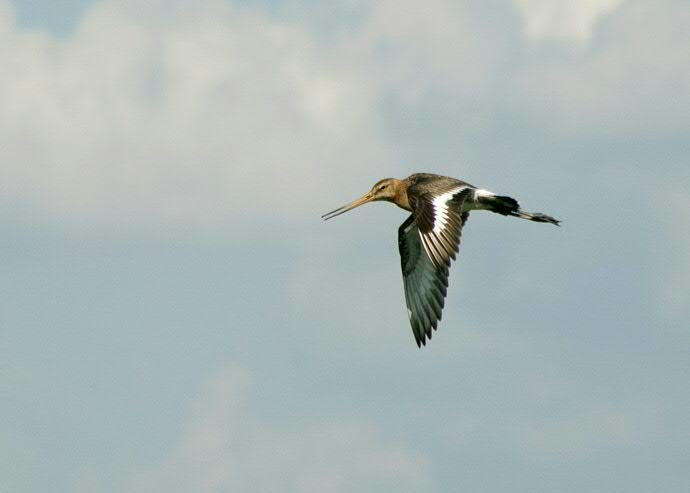Variation among individual animals: a bit of genetics, a bit of environment, and fifty shades of grey

O ne of the central questions in biology is: Do an individual’s genes or its environment determine its traits? It is now clear that it is not ‘or’, but rather, ‘and’ and ‘how’. In an article that will appear in the Proceedings of the Royal Society B on 2 September 2015, Dr. Nathan Senner and his colleagues at the University of Groningen describe how recent advances in the fields of ecology and evolutionary biology are enabling researchers to achieve a much greater understanding of the influence of an individual’s environment on the course of its life. “Much of it is timing,” says Senner. “The environment experienced early in life might cause permanent changes in an individual, while the environment experienced later in life might only result in temporary alterations.”
Senner says it is possible to illustrate this idea with the migratory behaviour of the Black-tailed Godwit, which spends the winter in Iberia and West Africa and breeds in The Netherlands, “A bird such as the godwit is genetically programmed to migrate to The Netherlands in spring. But when exactly it migrates depends on the conditions it experienced during the preceding winter. If it is a harsh winter, it might need more time to fuel before migration, and thus depart later. However, this trait, ‘late departure,’ is not necessarily fixed. If conditions are better next year, it may be able to depart earlier.”
Carry-over Effects
Nevertheless the consequences of environmental conditions can carry-over to successive years, says Senner. “A bird born in a bad season gets a late start. This may force it to arrive later to its wintering area, meaning that it is at the end of the line and pushed into poor quality habitat. In turn, during the next breeding season, it may arrive on its breeding grounds after all the good spots have been taken. This pattern may then continue the following year as well, as many individuals develop very consistent schedules and frequently return to the same sites and habitats throughout their lives. In this way, a so-called ‘carry-over effect’ is created through which environmental conditions have long-lasting effects on an individual’s life.”
Different during development
The key to understanding how an individual’s environment may affect its life, though, is understanding what environmental conditions it experiences at different points during its development. According to Senner, “we see strong evidence across many different types of animals, from humans to fruit flies, that conditions experienced early in life can have permanent effects.” On the flip side, those conditions experienced during adulthood may have only temporary effects. As with the example of Black-tailed Godwits, a poor season experienced by an adult does necessarily affect it for the rest of its life. This is because an individual’s traits are much more stable, but also flexible, once it has reached adulthood.
Protection
Besides giving biologists a new framework for thinking about concepts such as Nature vs. Nurture (or genetics vs. the environment), the article is also a call to governments and nature conservation agencies. “You cannot draw conclusions about vulnerable areas or life stages of threatened species by simply looking at just one single season. Many adult animals are more flexible than we had previously thought. You have to do research for a long time, and especially on individual animals, before you can draw meaningful conclusions about when during their lives they are really most vulnerable.” The truth is, that between Nature and Nurture, there are at least fifty shades of grey.
Further information
- Contact: research leader and final author, Prof. Theunis Piersma.
-
The article, ‘An ontogenetic perspective on individual differences,’ is available online from 2 September 2015 in the Proceedings of the Royal Society B. DOI:
http://dx.doi.org/10.1098/rspb.2015.1050
Nathan R. Senner1, Jesse R. Conklin1, and Theunis Piersma1,2
1 Conservation Ecology Group, Groningen Institute for Evolutionary Life Sciences (GELIFES), University of Groningen; 2Department of Marine Ecology, NIOZ Royal Netherlands Institute for Sea Research
More news
-
27 January 2026
ERC Proof of Concept grant for Maria Loi
-
26 January 2026
Science for Society | The AI chip of the future
